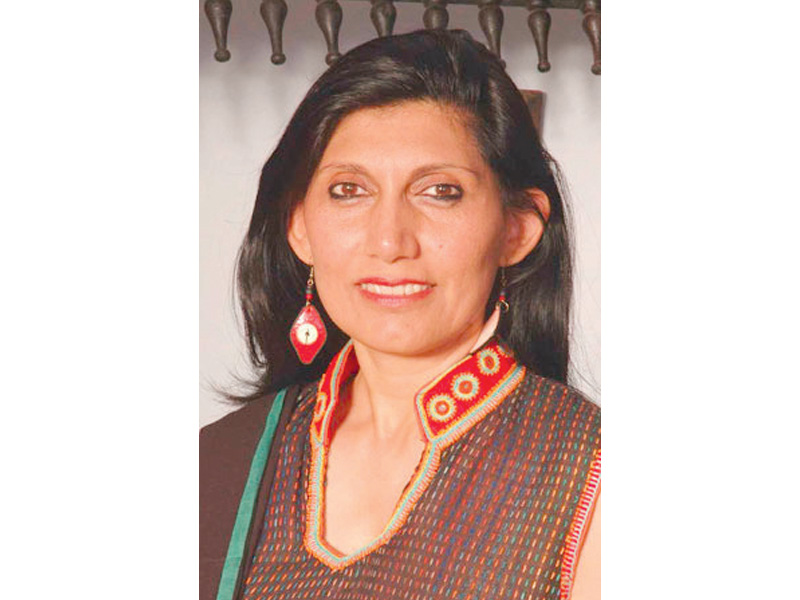
With the recent out-of-the-court settlement in the Shahzeb Khan murder case, civil society groups find themselves entangled in a new debate, as they press the government on a review of the Qisas and Diyat Ordinance 1990.
Civil society activists filed a petition to President Mamnoon Hussain, Prime Minister Nawaz Sharif and law and justice minister, on Tuesday, which demanded a re-visit of the ordinance and called for abolishment of discriminatory laws.
The petition was signed by over 900 civil society activists that included notable human rights activists, educationists, lawyers, journalists and concerned Pakistanis.
The document premised its claims over two significant cases in the past three years to claim gross violation of justice including the notorious Raymond Davis case in which families of victims forgave the accused, an action made possible by the 1990 ordinance entailing immunity for the rich and the powerful. The petition noted that current laws pertaining to murder protect the rich while exploit the weak and vulnerable. Director of Gender Study Centre Dr Farzana Bari added that the issue of impunity to the accused in ‘honour’ killing cases falls under the same category of injustice.
Human rights activist Dr Fouzia Saeed said “murder should be a crime against the state and not a person.”
The petition has requested the PML-N to order a review of the ordinance so as to ensure that sufficient mechanisms are in place within the legal framework to achieve justice and equality.
Chairman, Pakistan Ulema Council, Allama Tahir Ashrafi, however, said that the ordinance requires no amendments and rather basic flaws in the justice system should be rectified. “The weak system of prosecution provides breathing space to the accused,” he added.
In reply to the question that the ordinance is being misused by the powerful, Ashrafi claimed that stronger police and justice systems would serve as better deterrents and that it is the need of the hour to strengthen these institutions.
Published in The Express Tribune, September 18th, 2013.
COMMENTS (17)
Comments are moderated and generally will be posted if they are on-topic and not abusive.
For more information, please see our Comments FAQ
























1714129906-0/Clint-Eastwood-(1)1714129906-0-270x192.webp)
















1714024018-0/ModiLara-(1)1714024018-0-270x192.webp)









Khawaja, Yes , indeed. I agree with you. But if someone ... not directly involved... a member of the public or an organisation ,...is not happy with the particular form of the justice meted out , is there no ombudsman... Or does it have to be appealed in Court only.?
I find the 3 fold flexibility of....1) outright forgiveness. 2) monetary compensation to deceased's family.... And where it is a highly unacceptable unforgivable crime... The commensurate 3) death penalty for the murderous Death - giver
.....is good.
I also consider it good to make it " personal" ... Because death is an intensely personal experience for both the person who was killed in an untimely unnatural unexpected way and shocking and disrupting for the lives of the family friends, spouse of the deceased .
Ie Not a crime against the State... Unless it concerns a Head of State or Govt appointed minister.... Which is doubly heinous and should be pursued on both counts....with compensation or retribution exacted from family and State.
Right thing needs to be done. It doesn't matter if only one person is advocating. @khamosh:
In all civilized countries in the world , murder or any other crimes are considered against the State, of course there are victims involved and they are treated as such. It is the responsibility of the State to look after it's citizens and maintain law and order and that is why the State will prosecute those who are guilty of crimes against the society specially murders. It is time that the law makers in Pakistan make it crystal clear that any crimes committed against citizens will be considered crimes against the State and must be prosecuted to the fullest extent by the State, it is the State which will prove the guilt or innocence of the accused.
Why do people insist on not following the laws Allah has set out for us?
Any comment and initiative on 'Witness Protection'
This furore is another drama just to make headline to sooth the foreign elements who are paying the ones doing the furore to achive nothing. To soote their foreign paymasters anything against Islamic laws in fair game. If Zardari would've pardoned this kid on the basis of mercy petition than where this civil society would've gone. This system is not Islam's fault, but the fault of these plutocracy which include military generals, feudals, and these civil society who can "afford" to have one.
When will you speak for human rights violations of the rulers? No gas , no electricity, no medical, ONLY TAXES
Once again our friends here are going for the symptom and not the real disease. when one has a fever due to an infection, you take antibiotics to kill the infection, knowing that killing the infection would finish the fever.
the real issue here is the overall lack of any sort of justice in the country. remove this ordinance and replace it with any other ordinance which is more secular/modern/reformed, the outcome will be the same. with the current judicial and police system, the powerful will always be able to get their way.
our friend above mentioned that murder should be a crime against the state and not an individual. we have seen how many cases which are pursued by the state and they linger on for more than a decade and still no final decision has been reached? from those which have been solved, there are two outcomes: (a) solved in favor of the criminal due to his contacts and/or high status. (b) solved in favor of the aggrieved due to his contacts and/or high status.!!
so all these members of our "civil society" should try to fight the real problem rather than just going against anything which has an Arabic word attached to it or has an Islamic basis.
regards
How can they expect that Nawaz Sharif , the man who enforced this law, would repeal or amend it ? The people of Pakistan should be ready to get more injustice in the name of Islam ( they have been all along asking for it ). Now when the govt is ready to negotiate with taliban , more Islamic laws like the qisas and diyat ordinance and huduud law would be enforced to appease the bearded few.
ET please, you published the image of Fouzia Kasuri instead of Fouzia Bari. May be in order to attract more traffic or comments.
civil society is 73 people out of 20 carore in pakistan.. their demands must be heard
I think its simple...if its murder with intent...there should be no option of Qisas & Diyat, but if its without intention to kill then the option should be given only by the judiciary.
These are very encouraging signs. It makes me very happy.
If this happens so, it would be one of the best decision of this Govt.